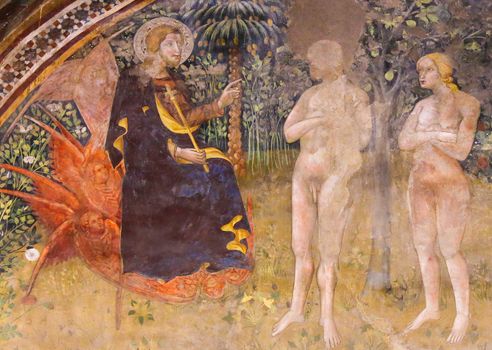Reading time: Less than 1 minute
Increase your vocabulary and you’ll make your writing much more precise. That’s why I provide a word of the week. Today’s word: prelapsarian….
It was the headline that grabbed my attention.
“How to Write a Bestseller,” promised the blog post written by Adam O’Fallon Price and published on the Millions website on Oct. 5/18.
What followed was a wry piece offering some tongue-in-cheek advice about how to produce a bestseller. For example,
“…Start your title with “The.” Around a third of these bestsellers are “The” books. The Goldfinch, The Nightingale, The Martian, The Interestings, The Vacationers, The Girl on the Train. Granted, “the” is a fairly common word in English usage, but I suspect it also holds some subliminal power for prospective readers, announcing a book as official in subject and purpose—the definite article, so to speak. Just imagine how many more copies All the Light We Cannot See would have sold if it had been titled, for example, The Light We Cannot See (All of It), or The Entirety of Unseen Light.”
Laughs aside, the post also gave me my word-of-the-week, prelapsarian. Here’s how Price used it:
I wrote the book, as many first-time novelists do, in a kind of prelapsarian innocence, protected from the practical concerns of publication by ignorance and wonder at the odd fact of writing a novel in the first place.
I’d seen the word prelapsarian many times, but had never before bothered to discern that it means “of, or relating to the period of innocence before the fall of humankind.” (When Adam and Eve ate the apple in the Garden of Eden. The image at the top of this post is a Renaissance fresco by Bartolo di Fredi depicting Jesus, Adam and Eve.)
The etymology of the word is Latin with pre- meaning “before” and laps from lapsus, meaning “a fall.”
An earlier version of this post first appeared on my blog on Oct. 17/18.


